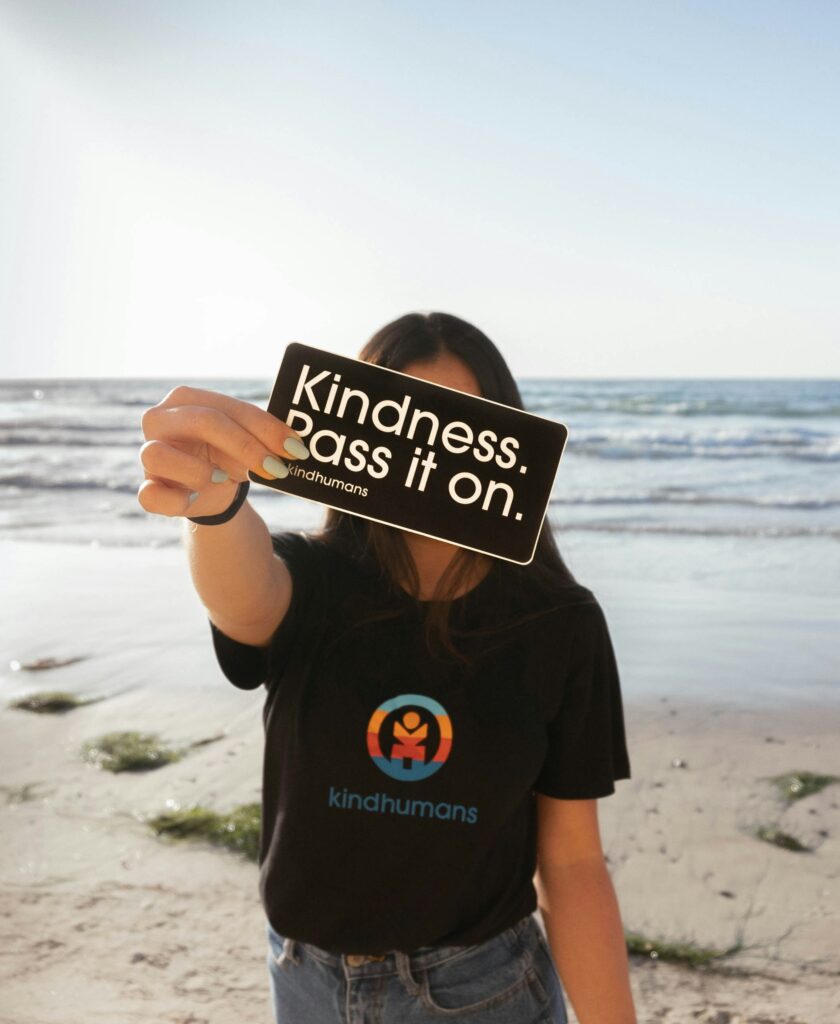The Ripple Effect of Kindness: Supporting Children for a Better Future


Kindness is a powerful force that can create lasting impacts, mainly when directed toward children. The early years of a child’s life are crucial in shaping their future, and acts of kindness during this time can have far-reaching effects. Adults can help children build emotional resilience, develop social skills, and achieve long-term success by offering support, empathy, and encouragement. This ripple effect of kindness extends to the individual child, the community, and society.
Nurturing Emotional Growth Through Kindness
One of the most significant ways kindness impacts children is by nurturing their emotional development. Acts of kindness, such as listening to their concerns or offering comforting words, teach children that their feelings matter. Children feel heard and understood and develop a sense of security and self-worth. This foundation allows them to navigate challenges with a healthy emotional perspective.
Furthermore, kindness fosters emotional intelligence in children. When adults demonstrate empathy, children learn how to manage their own emotions and recognize the feelings of others. This awareness helps them develop stronger relationships with peers and family members, building a network of positive interactions that will support them as they grow. As a result, these emotionally intelligent children are more likely to exhibit kindness in their interactions, creating a cycle of positive behavior.
Building Social Skills and Positive Relationships
Kindness is also key in helping children build strong social skills. Acts of kindness create opportunities for children to engage with their peers in meaningful ways. Whether it’s sharing toys, helping a classmate, or offering a compliment, these small gestures encourage children to interact with others respectfully and thoughtfully. These interactions teach them the importance of cooperation, compromise, and teamwork.
Moreover, kindness plays a vital role in preventing bullying and promoting inclusivity. Children who experience kindness are less likely to engage in hurtful behavior and are more likely to stand up for others in need. When practiced consistently, kindness creates a culture of acceptance where all children, regardless of background or differences, feel valued. By fostering such an environment, we help children grow into compassionate individuals who contribute to a more inclusive society.
Empowering Children for Future Success
The ripple effect of kindness doesn’t end with developing emotional and social skills. It also plays a crucial role in empowering children to reach their full potential. When children are supported with kindness, they are more likely to believe in their abilities and confidently pursue their goals. This encouragement can be the difference between a child who gives up quickly and one who strives for success despite setbacks.
Acts of kindness, such as offering praise for effort rather than just results, help children develop a growth mindset. They learn that their abilities are not fixed and that hard work and perseverance can lead to improvement. This mindset sets the stage for academic success and prepares them for adulthood’s challenges, where determination and resilience are key to achieving personal and professional goals.
Creating a Legacy of Kindness in the Community
When kindness is extended to children, it has the potential to ripple outwards, impacting the broader community. Children who grow up experiencing kindness are more likely to carry those values into adulthood. As they become parents, teachers, and leaders, they will pass on their lessons, ensuring that kindness remains a guiding principle for future generations.
Furthermore, when communities invest in kindness, they create environments where children feel safe, supported, and motivated to thrive. Initiatives such as mentorship programs, community outreach, and volunteer efforts encourage adults to act as role models for the younger generation. These actions foster a sense of unity and shared responsibility, demonstrating to children that they are part of something bigger than themselves. As these children mature, they are more likely to engage in acts of service and kindness, contributing to the ongoing development of their communities.
The Long-Term Impact of Kindness on Society
The ripple effect of kindness doesn’t just transform individuals or communities—it has the potential to reshape society. We are investing in the future by supporting children with acts of kindness. These children grow up as adults more likely to exhibit kindness, empathy, and collaboration in their work and personal lives. As a result, they contribute to building a society that values cooperation over conflict, compassion over indifference, and progress over division.
Moreover, a society rooted in kindness can better address societal challenges like poverty, inequality, and injustice. When individuals act with compassion and empathy, they are more likely to advocate for positive change and work towards solutions that benefit the collective well-being. By teaching children the importance of kindness from a young age, we equip them with the tools to be the compassionate leaders and changemakers of tomorrow.
